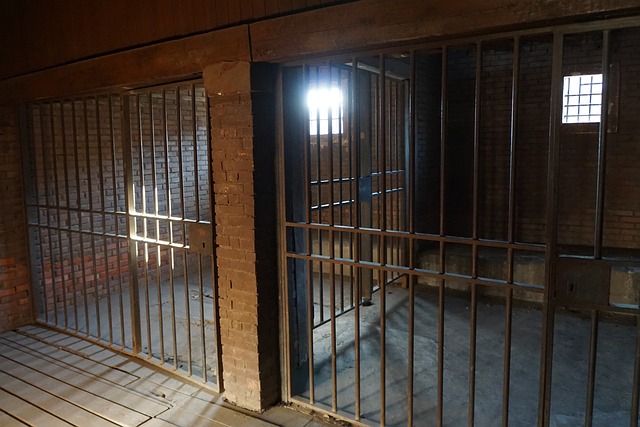Commercial drivers facing DUI charges must navigate complex laws with severe consequences, including license suspensions. To mitigate these penalties, exploring Alternative Transportation Options like ride-sharing or public transit is crucial for maintaining operations and compliance. Understanding insurance coverage for these alternatives is key, as it can cover costs during legal issues without disrupting livelihoods. Proactive measures such as providing rest areas and wellness programs also reduce DUI risks by addressing driver well-being. These strategies are essential for commercial drivers to balance their careers and legal status while ensuring safe road operations.
In the realm of commercial driving, a DUI conviction can have devastating effects. This article navigates the intricate world of Commercial Driver DUI Defense, exploring crucial aspects like understanding stringent laws and penalties, and investigating alternative transportation options—a key strategy for mitigating risks. We delve into effective legal defense strategies, analyzing the profound impact of DUI on careers and licenses, insurance coverage implications, and preventive measures to ensure safety on the road. Remember that, in this context, Alternative Transportation Options can be a game-changer.
- Understanding Commercial Driver DUI Laws and Penalties
- Exploring Alternative Transportation Options for Commercial Drivers
- Legal Defense Strategies for Commercial Driver DUI Cases
- The Impact of DUI on Commercial Driving Careers and Licenses
- Insurance Coverage and Commercial Driver DUI Incidents
- Preventive Measures: Keeping Commercial Drivers Safe on the Road
Understanding Commercial Driver DUI Laws and Penalties

For commercial drivers, a DUI (driving under the influence) conviction can have severe repercussions, often impacting their livelihood. It’s crucial to understand that commercial driver DUI laws are distinct from those for regular vehicles due to the potential risks involved with operating large vehicles and transporting goods or passengers. These laws are designed to maintain safety on the roads but can be complex, especially when considering penalties.
Penalties for a Commercial Driver DUI typically include heavy fines, license suspension or revocation, and mandatory drug and alcohol testing programs. Additionally, employers may face legal consequences if found negligent in their hiring or training processes. To mitigate these outcomes, commercial drivers should be aware of alternative transportation options readily available, such as designated drivers or ride-sharing services, which can help prevent DUI charges altogether while ensuring safe operations on the road.
Exploring Alternative Transportation Options for Commercial Drivers

In the event of a DUI (Driving Under the Influence) charge, commercial drivers face unique challenges due to their dependence on their license and livelihood. Exploring alternative transportation options becomes crucial during this time. Public transport, ride-sharing services, or even carpooling with fellow employees can be viable short-term solutions to maintain daily operations while legal matters are in progress. These choices not only ensure continued work but also demonstrate a commitment to responsible behavior, as they reduce the reliance on personal vehicles and driving skills that may be compromised due to alcohol consumption.
Additionally, commercial drivers might consider investing in alternative modes of transportation like electric bikes or scooters for short-distance trips. This shift can contribute to a greener environment while also offering a safe and legal way to stay mobile during periods when their driver’s license is temporarily suspended. By embracing these alternatives, drivers can actively work towards rebuilding their reputation and maintaining their professional standing.
Legal Defense Strategies for Commercial Driver DUI Cases

When facing a Commercial Driver DUI charge, understanding unique legal defense strategies is essential. One key approach involves exploring alternative transportation options. Given that commercial drivers often have access to company-provided vehicles, attorneys can argue that the driver was not operating their personal vehicle and thus, the circumstances may mitigate the severity of the offense. This strategy challenges the prosecution’s case by shifting focus from the driver’s state of intoxication to the use of alternative modes of transportation available through their employer.
Additionally, prioritizing evidence scrutiny is crucial. Commercial drivers have stricter rules regarding substance consumption before driving. Lawyers can scrutinize if pre-trip drug and alcohol testing protocols were followed accurately and challenge any inconsistencies in test results. By examining these procedures, defenses aim to demonstrate that the driver’s behavior didn’t deviate from established safety standards, potentially reducing the DUI charge’s weight.
The Impact of DUI on Commercial Driving Careers and Licenses

A DUI (Driving Under the Influence) conviction can have severe repercussions for commercial drivers, impacting their careers and licenses. Unlike personal vehicle usage, a DUI in a commercial setting carries even greater weight due to increased safety concerns and regulatory oversight. Commercial drivers are often required to maintain clean driving records, and a single conviction can lead to license suspension or revocation, making it challenging to secure employment in the industry. This not only disrupts their careers but also hinders their ability to provide for themselves and their families.
The consequences extend beyond individual circumstances; they can disrupt supply chains and impact businesses relying on these drivers. Many commercial drivers, faced with potential job loss, may turn to alternative transportation options or even leave the industry altogether. This shift could lead to increased costs and inefficiencies for businesses, as finding and training new drivers is a lengthy process. Therefore, mitigating the impact of DUI cases through robust defense strategies becomes essential not only for the driver’s future but also for the stability of the commercial driving sector.
Insurance Coverage and Commercial Driver DUI Incidents

In the event of a Commercial Driver DUI incident, understanding insurance coverage is paramount. Many commercial drivers carry Commercial Auto Insurance policies which include specific provisions for alternative transportation options in case of an arrest or impairment-related incident. These policies often cover the cost of alternative means of transportation to ensure business operations remain uninterrupted. For instance, if a truck driver is involved in a DUI situation, their policy might provide for rental cars or other forms of public transportation to ferry essential cargo or passengers until the driver’s legal issues are resolved.
This coverage can be a lifesaver, as it helps commercial drivers navigate the consequences of a DUI without disrupting their livelihood. It also underscores the importance of reviewing and understanding one’s insurance policy, particularly in industries where alternative transportation options are crucial to daily operations. By knowing what’s covered, drivers can make informed decisions and ensure they have a plan in place should an unexpected situation arise.
Preventive Measures: Keeping Commercial Drivers Safe on the Road

Commercial drivers, due to the nature of their work, often face unique challenges when it comes to road safety. To prevent DUI (Driving Under the Influence) incidents, several proactive measures can be implemented to keep these professionals safe. One effective strategy is to encourage and provide access to alternative transportation options for fatigued or impaired drivers. This could include designated rest areas with secure parking facilities where drivers can take mandatory breaks, ensuring they don’t risk driving while exhausted.
Additionally, companies should foster a culture of open communication, allowing drivers to report any concerns regarding their well-being without fear of reprisal. Regular health and wellness programs can also play a vital role in identifying potential issues early on. By offering resources for stress management, healthy eating, and fitness, employers can help commercial drivers maintain optimal physical and mental states, thereby reducing the likelihood of DUI-related incidents.
Commercial drivers facing DUI charges can navigate a complex legal landscape. Understanding their rights, exploring alternative transportation options like designated drivers or company-provided vehicles (as discussed in this article), and considering robust defense strategies are crucial steps to mitigate penalties that could significantly impact careers. By adhering to preventive measures and staying informed about changing regulations, commercial drivers can ensure safety on the road and protect their livelihoods.






